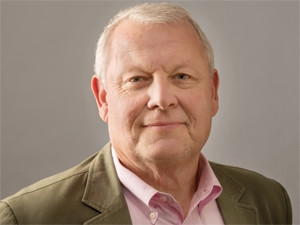
Africa is a high-growth area. Given this potential, the Web is important; particularly because access to the Web has the potential to enhance people's lives.
This is the word from Mozilla's VP of planning and ecosystem, Rick Fant. Sitting down with ITWeb during the 16th annual AfricaCom conference in Cape Town yesterday morning, Fant discussed the non-profit's objective to provide users with opportunities to get online.
"There is a difference between the products we ship into more stable growth areas and those that we market to the high-growth areas. Things like economics, price sensitivity and data access need to be taken into account when moving into regions like Africa." Part of achieving success involves communicating with operators and service providers about getting price points just right, he continued.
Fant also stressed the importance of localisation. "Everyone doesn't speak English. We need to ensure local languages are supported at launch, and making sure we have local content is key." This also involves collaborating with local partners who are better equipped to generate content that is appealing to local users.
Adding to this point, he notes users want to participate by bringing their own content online. "User-generated content is very important. This sees normal people generating their own apps that can be shared with friends and can enhance their community, their business or even their local soccer club." Fant cited a hair salon owner in Kenya building a small app to facilitate appointment bookings as an example of how user-generated applications and content targeted at small pockets of a community can prove fruitful.
"This is about bringing digital content to a broader market but also about creating innovation that is relevant for smaller micro communities. This is what the mobile Web needs to enhance and foster, he stated. "The Web as it exists today is very vibrant in all of the markets around Africa. But much of that digital economy is yet to switch to mobile, a transition that needs to occur."
As a relatively small player in the African mobile business, it is crucial for Mozilla to show the user base and content providers there are alternate ecosystems outside of what the entrenched players are offering. "Therein lies the opportunity for us. If we can show the African market what we have to offer, this has the potential to open up the mobile Web to a great degree, which fosters an open dialogue that is not restricted by control points."
Fant also mentioned the brand's recent partnership with MTN, Airtel and Tigo, to debut an entry-level set of devices as a way that Mozilla is further opening up opportunities for local content providers to gain access to users at a reduced cost.
This is all part of our big push in the region. "Local matters. Localisation matters. The big opportunity lies with the local market being relevant to local users."
Share